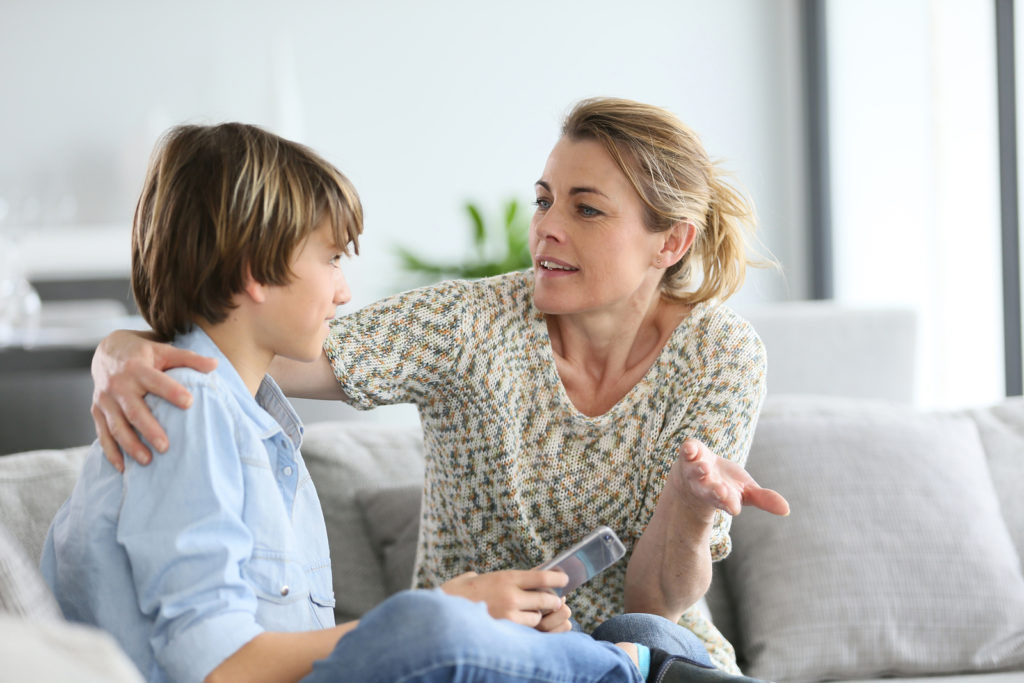
That’s what the kids are saying. “Everyone else is out there hanging out! I’m the only one stuck at home.” Social distancing can be excruciating.
This sounds familiar, doesn’t it? It sounds familiar every day of the year when you don’t allow your child to go to an event or gathering that everyone else is going to. Or so they say. Now we’re adjusting to COVID-19.
I’ve been part of discussions with moms frustrated with teens who insist on going out, who won’t take no for an answer. They keep their parents engaged in conversations that go nowhere, that keep anger and tension at a boiling point.
We are living in uncomfortable, unpredictable times. Try to remember that this is way beyond their normal. They’re usually in school for 6-7 hours a day. Most have after-school activities, sports, and music lessons. They have ongoing, face-to-face contact with lots of people, not just their friends. COVID-19 has turned this world upside-down.
Think about this. Their world has been highly structured with very clear goals and expectations. Now what? Now your kids are missing their structure and network, the glue that keeps the cycle of their days intact.
Add to this picture that their friends are there, but just out of reach. When you say ‘no’ to them being with their friends, it feels like social suicide to them, losing face because of their stupid parents. The worst thing for a tween or teen is to be different. Anything that makes them stand out in a negative way is the end of the world.
I know you’re struggling, too. Social distancing is difficult for everyone. Can you find a little compassion for them anyway?
You still have to say ‘no’. It’s the only way to keep your family safe, and to slow down the spread of this virus. Staying quarantined is the best way to shorten the quarantine.
That being said, the battle is real. The one with your child, that is: parents, children, young adults. Think of all those families with kids home from college. Close quarters and nowhere to go.

How do you talk about social distancing?
The first thing to remember is that your kids have feelings and they are allowed their feelings (whether or not you agree with them). This is the golden rule of parenting and communication.
When they argue with you about staying home, it’s because they have big emotions about it. It’s about their own frustration, needs and fears. Give them a minute to rant.
Don’t take it personally. That’s when things go sideways with arguing, lecturing and anger. You may be the source of their frustration because you won’t let them out; however, they are having trouble regulating their feelings.
Acknowledge, acknowledge, acknowledge. Tell your child you see how difficult this is. “I hear how difficult this is for you. It’s understandable/normal that you feel this way. And I’m sorry things are rough right now.” You’ll probably get more ranting about it, and that’s okay.
Do not go into long explanations with facts and statistics about how dangerous COVID-19 is. What you’ll get is more resistance.
When your child has settled a bit, you can respectfully and kindly share the bottom line. “I/we love you and understand that not being with your friends is really hard for you.”
“Unfortunately, it’s risky/dangerous to you and to our family if you do, and we’re not willing to take that risk. Social distancing is necessary. Fortunately, we’ll do whatever we can to help you connect with them in safe ways.”
(This is a suggestion about how to broach the topic. Change it up so it sounds like you, if you choose to do so. And thanks to Rebecca Smith of Complete Performance Coaching for the ‘unfortunately/fortunately’ tool.)
Thomas Paine wrote, “These are the times that try men’s souls” during the Revolutionary War. Indeed, they are for us, too.
We will get through this. A few extra deep breaths and a bit of compassion will go a long way in our families. What we do now, with and for our children, could be the most important learning and growth they experience in their young lives.
